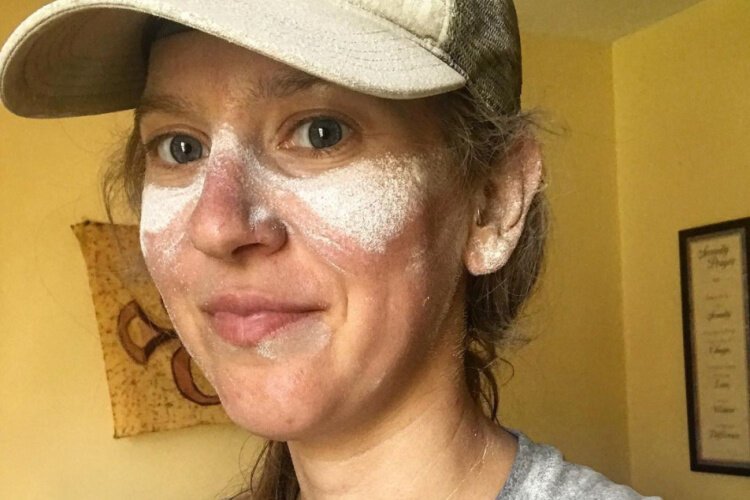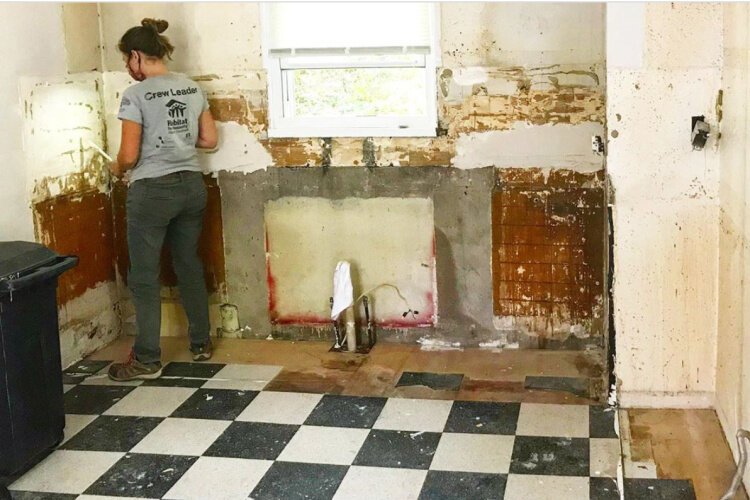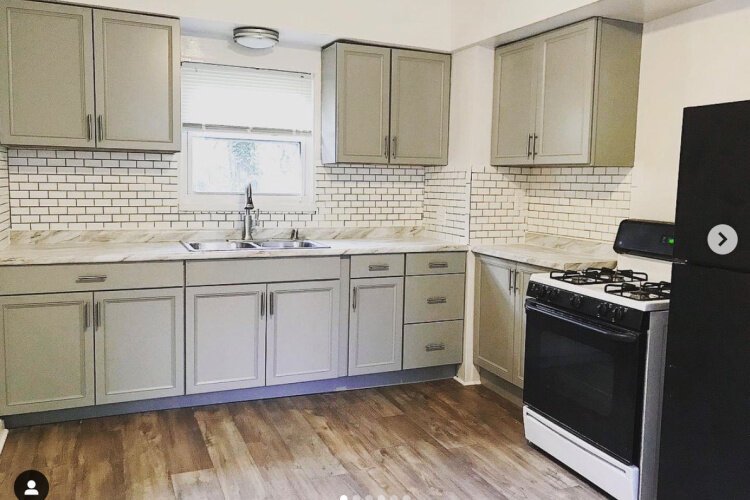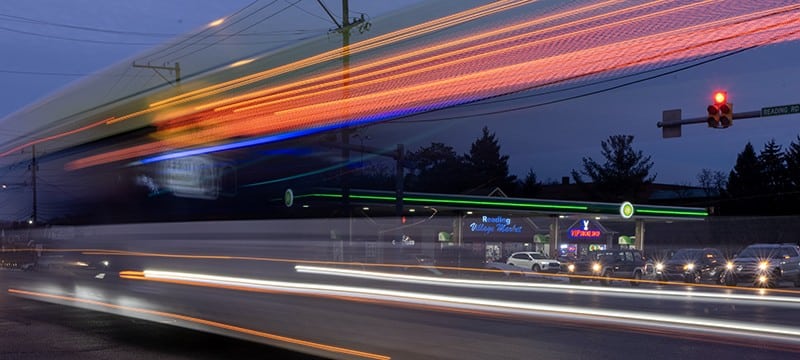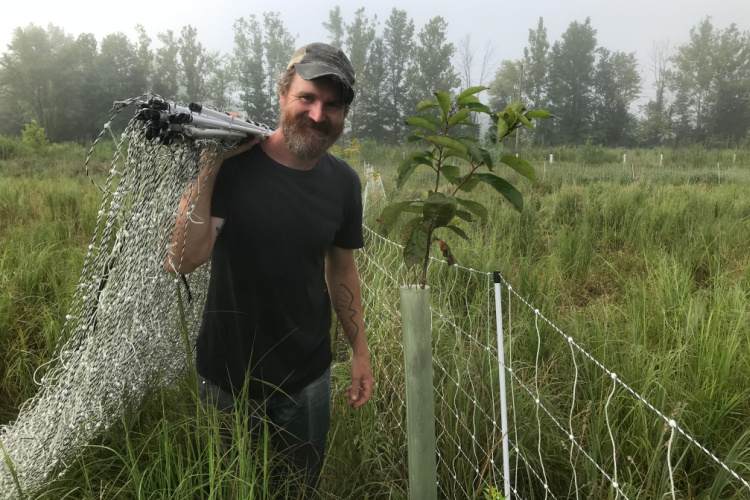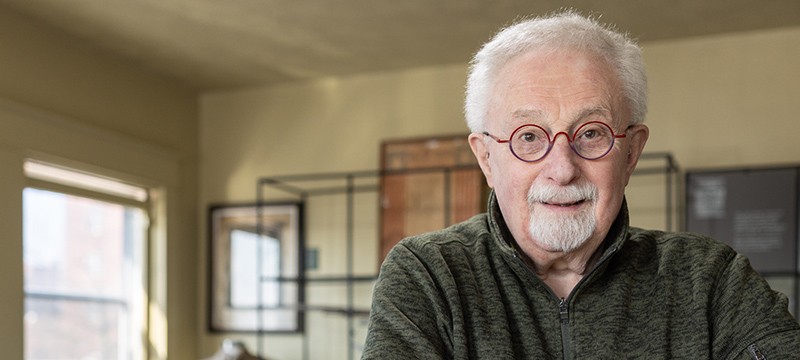Partner Partner Content Communities finding new ways to help in the pandemic
LISC Greater Cincinnati helped start a collection of programs and efforts to help people improve their homes and stay connected to community and necessary resources.
Covid-19 has forced all of us to spend more time in our homes.
So maybe it’s no surprise that Do It Yourself Darlin, Price Hill Will’s affordable home repair and renovation program, was fully booked for 2020 just three months after the program started in August. Price Hill families can apply for home repairs that they pay for on a need-based sliding scale.
“Minor repairs was the original plan, but it’s grown,” says Annie Darlin Gordon, who runs DIYDarlin and completes all the work. “I’ve done three full kitchen remodels, built a bathroom. There’s just a huge need.”
DIYDarlin is just one of a collection of programs and efforts started thanks to $140,000 LISC Greater Cincinnati made available to Place Matters communities across the region to help them respond rapidly to the evolving pandemic. Place Matters is a decade-old program that partners neighborhood nonprofits like Price Hill Will with local funders.
Price Hill, Madisonville, Avondale, Walnut Hills, West End, Covington, and Newport all are Place Matters communities. While Price Hill Will focused its funding on home repairs, other communities used the emergency funds to keep neighbors connected to each other and to needed resources.
Madisonville Community Urban Redevelopment Corp. was in the middle of a series of housing workshops when the pandemic hit and the U.S. shut down. Gathering dozens of people in a room became impossible but, more than ever, as businesses laid-off workers or shuttered completely, renters and homeowners needed to know what their rights were and what programs might help them pay their bills.
MCURC used its covid-19 relief funds to create a video housing forum and information bags that can be taken directly to senior citizens in the neighborhood. The video gives residents information about how to advocate for themselves and where to turn to get financial assistance.
“All of the work you’re doing, it can go away just immediately when a crisis happens,” says MCURC Executive Director Elishia Chamberlain. “You have to be able to help sustain people in a time like this.”
MCURC also is working a farmer’s market to address food scarcity in the neighborhood, a problem exacerbated since people have lost or sold their vehicles in the pandemic, Chamberlain says. Another program, Madisonville Diaries, will showcase residents’ memories and feelings about the neighborhood.
“The real goal is to talk to people we’ve never spoken to,” Chamberlain says. “We’re trying to connect in whatever way we can.”
Community connections are exactly what started DIYDarlin in Price Hill Will.
Gordon came to Price Hill six years ago to work with MyCincinnati, a youth orchestra that works closely with Price Hill Will, as a program instructor and coordinator. A flautist with a master’s degree from Carnegie Mellon, Gordon helped to start MyCincinnati’s winds program but found herself with extra time that she filled working with Habitat for Humanity, through Americorps, and using her new found construction skills on her own home. She used her middle name — Darlin, passed down through three generations in her family — to create an Instagram account to document her construction adventures.
Because of her work with MyCincinnati, Gordon knew families in the community needed help. Houses in the neighborhood are old. First-time homeowners or renters might not know how to make basic repairs. Supplies and labor can be costly.
“There’s this incredible demand for houses to be taken care of in an affordable way,” Gordon says.
So, when Price Hill Will found themselves with funding, Gordon pitched her project: DIYDarlin, a program that would offer affordable repairs and also teach the families who hired her the skills to DIY the next project.
Gordon will complete eight projects — most much larger than the minor repairs she originally envisioned — by the end of 2020.
“Do It Yourself Darlin and the virtual housing forum are just two examples of many that show how long-term investments in resident-led partnerships and neighborhood nonprofits like Price Hill Will and MCURC are needed to improve the quality of life in our communities,” says Kristen Baker, executive director of LISC of Greater Cincinnati. “This is true especially in times of crisis and recovery.”
The series, Community Stories, is supported by LISC Greater Cincinnati. Learn more at lisc.org/greatercincinnati.

